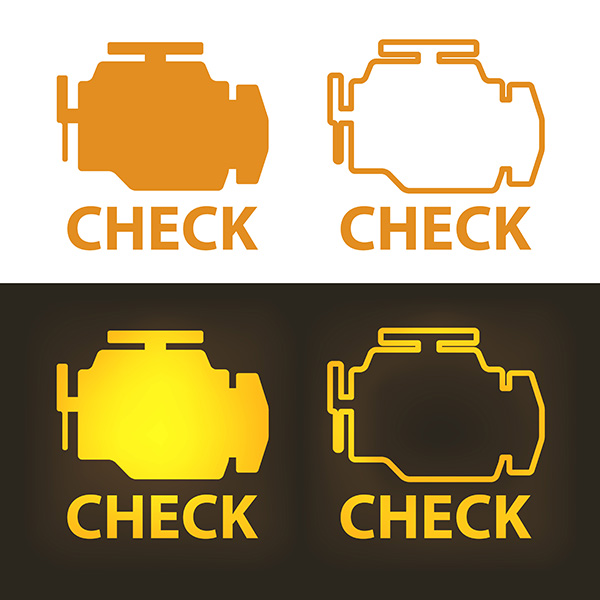
Did your check engine light just appear on your dashboard? That tiny orange or yellow light can send any driver into a panic. But what does it really mean? Should you pull over immediately? The truth is that the check engine light is a signal from your car’s onboard diagnostics system that something isn’t right, but the severity can vary. Let’s break down what the check engine light could indicate and why you shouldn’t ignore it.
What Triggers the Check Engine Light?
The check engine light is part of your car’s onboard diagnostics (OBD) system, which constantly monitors engine performance and emissions. When the system detects an issue that could affect your car’s emissions or cause engine damage, the light comes on. It can be triggered by anything from a loose gas cap to more serious issues like a failing catalytic converter or engine misfire.
Here are some of the most common reasons your check engine light might turn on:
Loose or Damaged Gas Cap
One of the most trivial reasons for the light to come on is a gas cap that isn’t tightened properly. This can cause a slight leak in your fuel system, affecting emissions.
Oxygen Sensor Malfunction
The oxygen sensor measures the amount of unburned oxygen in your car’s exhaust system. If it fails, your vehicle may run less efficiently and consume more fuel.
Catalytic Converter Issues
This component helps reduce harmful emissions. If your catalytic converter fails, it can cause your car to run poorly and even lead to the vehicle not starting.
Faulty Spark Plugs or Ignition Coils
These parts are responsible for igniting the air/fuel mixture in the engine. A misfire or failure can lead to engine damage if not addressed.
Mass Airflow Sensor Problems
The mass airflow sensor tells your car’s computer how much air is entering the engine, helping regulate fuel use. A faulty sensor can result in poor engine performance and reduced fuel efficiency.
What Does a Flashing Check Engine Light Mean
While the check engine light is always a cause for concern, a flashing light is an urgent issue that requires immediate attention. A solid check engine light might suggest a problem that can wait a few days, but a flashing light often indicates a severe issue, such as an engine misfire that could damage the catalytic converter or other parts of the vehicle. In this case, it's essential to pull over and have your vehicle checked as soon as possible to avoid costly repairs down the road.
What Should You Do When the Check Engine Light Comes On
The first thing to do when you see the check engine light is to remain calm. Don’t panic, but don’t ignore it either. Here’s a simple guide on how to handle the situation:
Check for Immediate Problems
Look at your vehicle’s gauges and lights to see if there are any signs of immediate trouble, like low oil pressure or an overheating engine. If you notice any of these issues, pull over as soon as it’s safe and turn off the engine.
Check Your Gas Cap
Believe it or not, a loose gas cap can trigger the check engine light. Make sure the gas cap is tightly secured. If it was loose, this might solve the problem after a few trips.
Monitor the Light
If the check engine light remains on but your car is running normally, you may be okay to drive for a short while. However, it’s best to schedule an appointment with your mechanic as soon as possible to have it diagnosed.
Use a Diagnostic Scanner
If you have access to an OBD-II scanner, you can read the error code stored on your car’s computer. This code will give you a clearer idea of what’s wrong, but keep in mind that even with a code, it’s best to let a professional handle the repair.
Don’t Wait Too Long
If the check engine light remains on, don’t procrastinate. Even if your vehicle seems to be driving fine, ignoring the problem can lead to more significant damage and expensive repairs later.
How Serious Is the Check Engine Light?
Not all check engine lights are created equal. Sometimes, it’s a simple fix, like tightening your gas cap, while other times, it signals a more serious problem that could lead to expensive repairs. The key is not to ignore it. Addressing the issue early can save you from more severe problems, prevent breakdowns, and ensure your car remains safe and roadworthy.
Worried about your check engine light? Don’t wait until it’s too late. Visit Valley Automotive for a professional diagnostic test and let our experienced technicians get to the bottom of the issue.